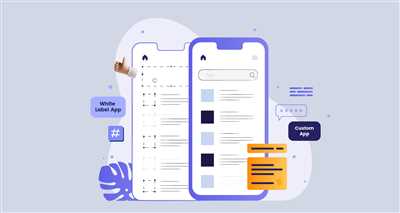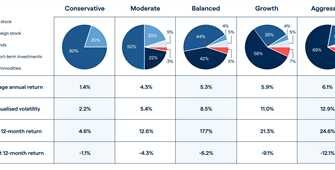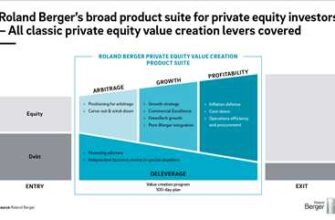
If you have an idea for a mobile application and want to bring it to life, you might be wondering where to start. Developing a mobile app is no longer limited to those with programming expertise. With the advent of no-code app builders, even those with no coding knowledge can create their own app from scratch.
In this post, we will explore the process of app development and provide tips on how to make an app that is both user-friendly and scalable. Whether you are a business owner, a freelancer, or a tech enthusiast, this guide will help you understand what’s involved in creating an app and how to do it within your budget and resources.
Before we dive into the details, let’s first identify the different types of app development and understand the difference between native and hybrid apps. Native apps are coded specifically for a certain operating system, such as iOS or Android, while hybrid apps are compatible with multiple systems. Depending on your needs and objectives, you can choose the best approach for your app development.
Now that we know the basics, let’s discuss how to make an app step by step. In the first step, you need to have a good idea for your app. Identify the market needs and the target audience. Determine what problem your app will solve and how it will provide value to users. Once your idea is valid and you have done market research, you can move on to the next step.
- How To Create an App: The Ultimate Guide for 2023
- How to create an app for mobile devices
- Best step-by-step tips to create your own app
- 2 Research and Market Analysis
- App Development FAQs
- 1 How Much Does It Cost To Build An App
- 2 How Do App Developers Charge For Their Services
- 3 How Long Does It Take To Build An App
- 4 iOS App Development vs Android App Development What’s The Difference
- FAQs
- Who do you need to create an app
- Video:
- How To Make A FREE Mobile App for Business (Quick & Easy!) | Jotform Tutorial
How To Create an App: The Ultimate Guide for 2023
In today’s mobile-driven landscape, creating an app has become an essential service for businesses and individuals alike. With the rise of innovative systems, building an app is now simpler and more accessible than ever before. If you’re looking to make an app in 2023, this guide will provide you with the ultimate roadmap to success.
Step 1: Define Your Goals
Before diving into the app-making process, it’s crucial to identify your objectives and determine what you want to achieve with your app. Are you looking to provide a service? Is your goal to teach users a specific skill? Understanding your goals will help shape your app’s design and functionality.
Step 2: Conduct Market Research
To ensure your app meets the needs of your target audience, conducting thorough market research is essential. Analyze the current landscape and identify opportunities where your app can excel. Research your competitors to identify their strengths and weaknesses, and use this information to make your app better.
Step 3: Choose Your Development Approach
There are three main approaches to app development: native, web-based, and hybrid. Native apps are coded specifically for a particular platform, such as iOS or Android. Web-based apps use HTML, CSS, and JavaScript, making them accessible across multiple devices. Hybrid apps combine elements of both native and web-based apps, offering a balance between performance and flexibility. Choose the approach that aligns best with your app’s goals and budget.
Step 4: Design and Prototype
The design of your app plays a crucial role in attracting and retaining users. Use wireframing tools or design software to create a blueprint of your app’s layout and features. Prototype your design to test its usability and gather feedback from potential users. Iterate on your design until you’re satisfied with the user experience it provides.
Step 5: Hire Developers or Use No-Code Platforms
Depending on your coding skills and budget, you can either hire developers to bring your app to life or use no-code platforms that require minimal coding knowledge. Hiring developers offers more flexibility and customization options, while no-code platforms streamline the app-building process, allowing you to create an app faster and at a lower cost.
Step 6: Build and Test
Once you have your design and development resources in place, it’s time to start building your app. Follow your development timeline and ensure that all features and functionalities are implemented correctly. Conduct thorough testing to identify and fix any bugs or usability issues. Test your app on different devices and operating systems to ensure compatibility.
Step 7: Launch and Promote
After successfully building and testing your app, it’s time to launch it to the public. Create a marketing strategy to promote your app and reach your target audience. Utilize social media platforms, app stores, and other promotional channels to increase your app’s visibility and downloads.
Step 8: Monitor and Iterate
Launching your app is just the beginning of its journey. Monitor user feedback and conduct regular updates to improve your app’s performance and address user needs. Stay up-to-date with the latest industry trends and technology advancements to ensure your app remains competitive in the long term.
Creating an app in 2023 is an exciting opportunity to provide value to your users and potentially grow your business. With the right approach, resources, and dedication, you can turn your app idea into a successful reality.
How to create an app for mobile devices
Creating a mobile app can seem like a complex and daunting task, but with the right approach and tools, it can be a manageable and even enjoyable process. Whether you’re a business owner looking to build an app for your company or an individual who wants to create the next big mobile app, this step-by-step guide will help you get started.
Step 1: Do Your Research
Before you begin creating your mobile app, it’s important to do thorough research. Identify what your app will do and who your target users are. This will help you define your app’s main features and determine the best approach for development.
Step 2: Choose the Right App Builder
There are several app builders available that can help you create an app quickly and easily. Some offer free templates that you can customize, while others allow you to build an app from scratch. Depending on your budget and level of coding knowledge, you can choose the option that works best for you.
Step 3: Take Advantage of No-Code Platforms
If you have little to no programming experience, using a no-code platform might be the best option for you. These platforms allow you to create mobile applications without writing a single line of code. They offer a user-friendly interface and pre-built functionalities that you can easily customize to fit your needs.
Step 4: Plan Your Timeline and Budget
Before you start developing your app, it’s important to plan out your timeline and budget. Take into consideration how long it will take to create the app and how much money you’re willing to invest. This will help you stay on track and avoid any unnecessary delays or financial setbacks.
Step 5: Consider Native or Cross-Platform Development
When it comes to app development, you have the option to create a native app or a cross-platform app. Native apps are specifically designed for a particular operating system, such as iOS or Android, and offer better performance and user experience. Cross-platform apps, on the other hand, can be deployed on multiple platforms with a single codebase, although they might not be as fast or efficient as native apps.
Step 6: Design and Build Your App
Once you’ve identified your target audience, chosen the right app builder, and planned your timeline and budget, it’s time to start designing and building your app. Make sure to create an intuitive and visually appealing interface that is easy to navigate. Test your app throughout the development process to ensure its functionality and usability.
Step 7: Test and Launch Your App
Before launching your app, it’s important to thoroughly test it to identify and fix any bugs or issues. You can use a panel of beta testers to get feedback and make necessary improvements. Once your app is stable and bug-free, you can submit it to the Apple App Store or Google Play Store for approval.
Step 8: Maintain and Improve Your App
Creating a mobile app is not a one-time process; it requires ongoing maintenance and improvements. Listen to user feedback and regularly update your app to fix issues and add new features. This will help keep your app competitive in the ever-changing mobile app landscape.
In conclusion, creating an app for mobile devices can be a simple and straightforward process if you follow these step-by-step guidelines. Whether you choose to code from scratch or use an app builder, it’s important to have a clear understanding of your app’s purpose and target audience. With the right tools and a good development team or agency, you can bring your app idea to life and potentially make money from it.
Best step-by-step tips to create your own app
Creating your own mobile app can be a challenging task, but with the right guidance and resources, it is completely possible. Whether you are an individual with a great app idea or a company looking to provide app development services, these step-by-step tips will help you through the process.
- Identify your goals: Before you start building your app, it is important to clearly identify what you want to achieve with it. Are you looking to make money from it, provide a free service, or promote your business?
- Conduct market research: Researching the current market and analyzing competitor apps will help you understand what works and what doesn’t. This assessment will also provide you with opportunities to differentiate your app.
- Define your target users: Understanding your target audience is crucial for building a successful app. Learn about their needs, preferences, and pain points to create a product that truly caters to them.
- Create a wireframe or a design template: Building a simple design template or wireframe will help you visualize the app’s structure and flow. This will also guide your team of designers and developers throughout the project.
- Gather necessary resources: Building an app requires both time and expertise. Identify whether you have the in-house expertise or need to outsource the development to an agency or freelancers.
- Decide on the development approach: There are different ways to build an app, such as native development for iOS or Android, or using hybrid frameworks like React Native. Assess the pros and cons of each approach to make a better decision.
- Start coding: If you have the coding expertise, you can start building the app yourself. Otherwise, hire developers who can bring your vision to life.
- Test, test, test: Testing is a crucial part of app development. Make sure to conduct thorough testing within different devices and versions to ensure your app runs smoothly.
- Iterate and improve: Once your app is launched, the process doesn’t end there. Collect user feedback, analyze metrics, and constantly work on improving the app’s performance and user experience.
- Publish your app: Finally, when you are satisfied with your app’s performance, it’s time to publish it on the relevant app stores, such as Apple App Store or Google Play Store.
Remember, building a mobile app can be a long and hard process, but with the right approach and dedication, you can create a successful product that users will love.
2 Research and Market Analysis

Research and market analysis are essential steps in developing a successful mobile app. Before jumping into the main project, it is crucial to conduct thorough research to understand the market and identify potential opportunities. This will help you create a mobile app that meets the needs of users and stands out from other projects.
There are several ways to conduct research and market analysis for mobile app development. Some simple and free methods include reading blog posts, engaging in forums, and attending industry events. These resources can provide valuable insights into market trends, user preferences, and competitors.
One important aspect to consider before developing a mobile app is to understand the main differences between iOS and Android systems. Each platform has its own programming languages (Objective-C for iOS and Java for Android), and building native apps for each platform can be time-consuming and costly. However, there are cross-platform frameworks and tools available, such as React Native and Xamarin, which allow you to create apps that work on both iOS and Android devices without the need for separate coding.
Another important task during the research phase is to identify your target audience and assess their needs and expectations. This assessment will help you tailor your app’s features and functionality to meet the specific requirements of your users. Additionally, understanding your target audience will also help you determine the best strategies for promoting and monetizing your app.
In addition to researching your target audience, it is also essential to assess the competition in the market. Researching other apps in your niche will give you insights into what’s already available and what’s missing. This can help you identify unique selling points and differentiate your app from the competition.
Market analysis is not only about understanding your target audience and competition but also about identifying market trends and emerging technologies. Keeping up with the latest industry developments will allow you to stay ahead of the game and provide better products and services to your users.
Although conducting research and market analysis may seem like a challenging task, there are tools and resources available that can make it easier. For example, you can use market research tools such as App Annie or Sensor Tower to gather insights on market trends, user demographics, and app performance. These tools can provide valuable data to support your decision-making process.
To summarize, research and market analysis are crucial steps in mobile app development. They help you understand the market, identify opportunities, and create a product that meets the needs of your target audience. By conducting thorough research and analysis, you can improve the chances of building a successful and profitable mobile app.
| FAQs |
| Q: What does research and market analysis mean in app development? |
| A: Research and market analysis in app development refer to the process of gathering information about the target audience, competition, market trends, and emerging technologies. This helps in making informed decisions and creating a successful mobile app. |
| Q: Can I develop a mobile app without conducting research and market analysis? |
| A: Although it is possible to develop a mobile app without conducting research and market analysis, it is not recommended. Without understanding the market and user preferences, there is a higher chance of creating an app that does not meet the user’s needs or fails to attract users. |
| Q: How long does research and market analysis take? |
| A: The duration of research and market analysis varies depending on the complexity of the project and the depth of analysis required. It can take anywhere from a few hours to several weeks or even months. |
| Q: I have an idea for a mobile app. Do I need expertise in coding to develop it? |
| A: No, you don’t necessarily need expertise in coding to develop a mobile app. There are app makers and template-based systems available where you can create a simple app without coding. However, for more complex projects or to have full control over the app’s development, coding expertise will be beneficial. |
By conducting thorough research and market analysis, businesses can better understand the mobile app market and identify opportunities to create successful and profitable apps. This assessment of the market and target audience, along with the right resources and expertise, will help businesses build mobile apps that meet the needs of users and stand out in the highly competitive market.
App Development FAQs
Are you an aspiring app developer? Do you want to know more about creating mobile applications? Here are some frequently asked questions about app development:
- 1. How long does it take to build an app?
- 2. Do I need to know coding to create an app?
- 3. What resources do I need to develop my own app?
- 4. Can I use a template or app builder to make my app?
- 5. Will developing a native app be better than a cross-platform one?
- 6. Where can I find good app developers?
- 7. How much does it cost to develop an app?
- 8. What are some important factors to consider in app development?
- 9. How can an app development service help launch my app?
- 10. How can I make my app more competitive in the app landscape?
1. How long does it take to build an app?
The time it takes to build an app can vary depending on the complexity of the project. A simple app with basic features might take around 4-6 weeks to develop. However, more complex apps with advanced functionalities can take several months or even years to complete.
2. Do I need to know coding to create an app?
Although it’s not necessary to know coding, having some understanding of coding languages such as Swift (for iOS) or Java (for Android) can be beneficial. However, there are also no-code app makers available that allow you to build apps without coding knowledge.
3. What resources do I need to develop my own app?
To develop your own app, you’ll need a computer, an internet connection, and access to app development tools and resources. These can include software development kits (SDKs), integrated development environments (IDEs), and design resources like icons and templates.
4. Can I use a template or app builder to make my app?
Yes, using a template or app builder can help you create an app faster. They provide pre-coded components and drag-and-drop interfaces that simplify the app development process. However, keep in mind that using templates or app builders might limit your customization options.
5. Will developing a native app be better than a cross-platform one?
Both native and cross-platform apps have their strengths and weaknesses. Native apps are specifically built for a certain platform (such as iOS or Android) and offer better performance and access to platform-specific features. On the other hand, cross-platform apps can be developed once and run on multiple platforms, which can save time and resources. The choice depends on your goals and target audience.
6. Where can I find good app developers?
If you’re looking to hire app developers, you can start by conducting an online search or posting a job on platforms like Upwork or Freelancer. It’s important to assess their expertise and portfolio to ensure they have the skills and experience needed for your project.
7. How much does it cost to develop an app?
The cost of app development can vary greatly depending on the complexity of the app and the rates of the app developers or development company. A simple app can cost anywhere from $5,000 to $20,000, while more complex apps can cost $50,000 or more. It’s important to get a detailed cost estimation from the developers or companies you’re considering.
8. What are some important factors to consider in app development?
Some important factors to consider in app development include identifying your target audience, setting clear goals for your app, conducting market research and analysis, and creating a user-friendly and visually appealing design. It’s also crucial to regularly update and maintain your app to keep up with the evolving mobile landscape.
9. How can an app development service help launch my app?
An app development service can provide a range of services to help you launch your app successfully. They can assist with app design, development, testing, and deployment. They can also provide post-launch support, maintenance, and updates to ensure your app remains functional and competitive.
10. How can I make my app more competitive in the app landscape?
To make your app more competitive, it’s important to differentiate it from other similar apps in the market. This can be done by offering unique features, providing a better user experience, and continuously improving and updating your app based on user feedback. Understanding the needs and preferences of your target audience is key to staying ahead in the competitive app development landscape.
1 How Much Does It Cost To Build An App
When it comes to building an app, one of the most important factors to consider is the cost. The cost of building an app can vary depending on a number of factors, including the complexity of the app, the number of features it has, and the expertise of the developers and designers involved.
For businesses and organizations looking to create their own mobile app, it’s important to learn about the different stages and tasks involved in the app development process. This includes conducting research, understanding the needs of your target market, and creating a design that not only looks good but also meets the needs of your users.
There are several approaches to building an app, ranging from coding it from scratch using languages like Objective-C or Swift, to using a template or a builder service. Each approach has its own pros and cons, so it’s important to know what you need and what kind of expertise you have at your disposal.
One of the first steps in app development is conducting a competitive analysis to better understand the app landscape and what users might be looking for. This will help you determine the features and functionalities your app should have to stand out in the market.
Another important factor to consider is scalability. You may need your app to grow and adapt as your business or organization grows. This means considering the long-term goals and objectives of your app before starting the development process.
So, how much does it cost to build an app? The cost can vary greatly depending on the complexity of the project and the expertise of the developers and designers involved. Generally, building an app from scratch is more expensive than using a template or a builder service.
The cost also depends on the platform you choose to develop for. Building an app for iOS using Objective-C or Swift might be more costly than building an app for Android using Java or Kotlin. It’s important to take into consideration the devices your target market uses and the market share of each platform.
Ultimately, the cost of building an app is a combination of the time, effort, and expertise required to bring your idea to life. It’s always a good idea to seek help from an app development agency or an expert in the field if you’re not sure where to start.
Throughout the app development process, it’s important to have a clear understanding of your goals and objectives. This will help guide the decisions you make throughout the project, from design to coding to launch.
Building an app can be a challenging and complex task, but with the right approach and expertise, it can also be a rewarding one. Understanding the cost and the different stages involved in the app development process is the first step towards creating a successful mobile app.
If you need help with your app development project, we at XYZ Agency have the expertise and experience to guide you through the process. Check out our FAQs or contact us for a free assessment.
2 How Do App Developers Charge For Their Services
When it comes to building a mobile app, most businesses and individuals turn to an app development agency to bring their ideas to life. But how do app developers charge for their services? Here are some tips to help you understand the pricing process and make an informed decision:
- Research and Analysis: Before starting any project, app developers need to thoroughly research and analyze your business goals, target audience, and competition. This initial phase helps them understand what your app needs to achieve and how it can stand out in the app market.
- Programming Languages: Developing a mobile app requires coding in different programming languages. The most common languages for iOS apps are Objective-C and Swift, while Java and Kotlin are used for Android apps. Understanding the differences between these languages and their capabilities can help you determine the right path for your app.
- Hours of Development: The time spent on developing an app can vary depending on its complexity and the functionalities it needs to have. App developers usually charge per hour of work, so understanding the estimated development time can give you an idea of the overall cost.
- No-Code or From Scratch: There are tools available that allow you to build mobile apps with little to no coding experience. These app builders can be a more affordable option, but they may not offer the scalability and customization that a fully-coded app does.
- Native or Cross-Platform: Native app development involves coding separate apps for each platform (iOS and Android), while cross-platform development uses frameworks like React Native or Flutter to create a single codebase for both platforms. The choice between native and cross-platform development can affect the cost and time required to build your app.
- Admin Panel and Backend Systems: If your app requires an admin panel or backend systems to manage data and user interactions, this will add to the development cost. These components are crucial for many business applications but might not be necessary for simpler app ideas.
It’s important to remember that every app development company or freelancer has their own pricing structure. Some may provide fixed project rates, while others charge an hourly rate. Additionally, pricing may vary depending on the location and expertise of the developers.
When working with an app development agency, make sure to discuss your budget and project requirements upfront. This will help you avoid any surprises and ensure that the development process stays within your financial boundaries. Ultimately, the cost of app development will depend on the complexity of your project and the level of expertise and resources your app developer can provide.
As the mobile app landscape continues to evolve, more opportunities to create and make money from apps will arise. Whether you’re a business owner looking to streamline your operations or an individual with a unique app idea, understanding how app developers charge for their services is crucial to bringing your app to life.
In summary, app developers charge for their services based on factors such as research and analysis, programming languages, hours of development, no-code or from scratch development, native or cross-platform development, and the inclusion of admin panels and backend systems. It’s important to have a clear understanding of your app’s needs and your budget before entering into any agreements with app developers.
3 How Long Does It Take To Build An App
When it comes to building a mobile app, one of the most common questions that arises is: How long will it take? The answer to this question depends on various factors, including the complexity of the app, the expertise of the developers, and the development approach taken.
Developing a mobile app involves several tasks that need to be completed before the final product is ready. The process typically starts with conducting research and analysis to validate the idea and determine the goals of the app. This stage is crucial as it helps in creating a roadmap for the development process.
Once the idea is validated, the next step is designing the app. Designers will work on creating the user interface and user experience of the app to ensure it is user-friendly and visually appealing. This may involve creating multiple versions and conducting user testing to gather feedback and make improvements.
After the design phase, the actual development of the app begins. This involves coding the app using programming languages such as Objective-C for Apple’s iOS and Java or Kotlin for Android. Developers will also need to ensure that the app is compatible with different devices and screen sizes.
The time it takes to build an app can vary greatly depending on the complexity of the app and the experience of the development team. A simple app with basic features may take a few weeks to develop, while a more complex app with advanced features and integrations might take several months.
In addition to development time, it’s important to consider the time required for testing and quality assurance. This is crucial to ensure that the app functions as intended and is free from bugs and errors. It’s also worth mentioning that developing a mobile app is a continuous process, and updates and improvements will need to be made in the long term.
Another factor that can impact the timeline of app development is whether an organization chooses to build the app from scratch or use pre-existing frameworks or services. Building an app from scratch provides more flexibility and customization options but may take longer. On the other hand, using frameworks or services can speed up development but may limit the app’s scalability and uniqueness.
If you’re looking to build an app in 2023, it’s essential to know that there are various resources available to help you. You can learn app development yourself by taking online courses and guides or hire a development agency to take charge of the entire process. When choosing an agency or a team of developers, it’s important to consider their expertise, portfolio, and ability to meet your specific goals and requirements.
In conclusion, the timeline for building a mobile app can vary greatly depending on several factors. It’s important to conduct research and have a clear understanding of your app’s objectives before starting the development process. Additionally, involving designers, developers, and testers at the early stages can help streamline the process and ensure a better end product.
4 iOS App Development vs Android App Development What’s The Difference

When it comes to app development, there is a clear distinction between the two main systems in the mobile market: iOS and Android. While there are similarities between the two, there are also key differences that affect the entire development process.
Understanding Native Development:
One of the main differences between iOS and Android app development is the programming language used. iOS apps are typically coded using Objective-C or Swift, while Android apps are often developed in Java or Kotlin. This difference means that developers need a strong understanding of these languages in order to create native apps for each platform. Although there are cross-platform tools and frameworks available that allow developers to code once and deploy to multiple platforms, native development often provides a more scalable and optimized solution.
Design and User Interface:
Another difference lies in the design and user interface. iOS apps follow the design guidelines set by Apple, which emphasize simplicity and elegance. Android apps, on the other hand, have a more flexible design approach, allowing developers and designers to create custom interfaces and layouts. Therefore, iOS app development often requires more attention to detail and adhering to Apple’s design principles, while Android app development offers more freedom for customization.
Development Tools and Resources:
Both iOS and Android provide a range of development tools and resources to help developers with their projects. iOS has Xcode, an integrated development environment (IDE), while Android uses Android Studio. These tools offer features such as code editors, debugging tools, and simulators/emulators to test the app during the development process. Additionally, both platforms have official documentation, forums, and online communities that developers can rely on for support and guidance.
Market Opportunities:
When deciding which platform to develop an app for, it’s essential to consider the market opportunities and target audience. While iOS devices are popular among a more affluent demographic, Android devices dominate the global market share. Therefore, developing an app for iOS can provide opportunities for businesses with strong monetization goals, while Android app development may offer a larger user base and potential for reaching more diverse audiences.
Cost and Time:
The cost and time required for iOS and Android app development can vary. iOS development is often perceived as more expensive due to the need for Mac hardware and the time-intensive nature of app store reviews. On the other hand, Android app development can be more cost-effective and faster, as it allows for quicker deployment and a wider choice of devices. However, the overall cost and time will depend on the complexity of the app, the resources available, and the expertise of the development company.
Conclusion:
In conclusion, iOS and Android app development have their own strengths and considerations. It’s important to conduct thorough research and clarify your goals before starting a mobile app project. Understanding the differences between the two platforms, including their coding languages, design approaches, and market opportunities, will help you make an informed choice and provide the ultimate user experience for your app.
FAQs
Here are some frequently asked questions about developing mobile apps:
1. What’s the difference between developing an app for iOS and Android?
Although the process of creating an app for iOS and Android has some similarities, there are also some key differences. iOS apps are typically developed using the Swift or Objective-C programming languages and are available on Apple devices, while Android apps are developed using Java or Kotlin and can be used on a wider range of devices.
2. Can I create an app without coding?
Yes, there are app builders and templates available that allow you to create an app without coding knowledge. These platforms provide a simple interface where you can drag and drop elements to build your app.
3. How much does it cost to develop a mobile app?
The cost of developing a mobile app can vary greatly depending on various factors such as the complexity of the app, the number of platforms it will run on, the features and functionalities, and the resources and expertise required. It’s best to conduct a thorough assessment of your app idea and goals to get a valid understanding of the cost.
4. How long does it take to develop a mobile app?
The time it takes to develop a mobile app can vary significantly depending on the complexity of the project and the resources available. While simple apps can be developed in a few hours or days using pre-built templates, more complex and custom apps might take several months to complete.
5. What’s the best approach to building a mobile app?
The best approach to building a mobile app will depend on your budget, resources, and goals. Some businesses prefer to hire an app development agency to handle the entire process, while others might opt for in-house development using their own team. It’s important to research and understand your needs before deciding on the ultimate approach.
6. What are some tips for creating a good mobile app?
– Conduct market research to understand the needs and preferences of your target audience.
– Identify your app’s main goals and prioritize features accordingly.
– Keep the user interface intuitive and easy to navigate.
– Test your app thoroughly before launching to ensure it’s free of bugs and glitches.
– Consider scalability, as your app might need to accommodate more users in the future.
– Regularly update your app to fix any issues and add new features.
7. What resources can help me learn app development?
There are several resources available to help you learn app development, ranging from online tutorials and courses to books and forums. You can also consider joining coding bootcamps or hiring an app development expert to teach you the necessary skills.
8. What’s the difference between using an app builder and coding from scratch?
The main difference between using an app builder and coding from scratch is the level of control and customization you have. While an app builder provides a template and pre-defined features, coding from scratch allows you to create a completely unique app with tailored functionalities. App builders are faster and more budget-friendly, while coding from scratch offers more flexibility.
9. What are some tasks I should consider before starting a mobile app project?
– Define your app’s target audience and conduct market research.
– Create a detailed project plan, including timelines, milestones, and budget.
– Identify the core features and functionalities your app will need.
– Design an app interface that is visually appealing and user-friendly.
– Consider the devices and operating systems your app will run on.
– Evaluate different app development services and their pricing and expertise.
10. What does it mean to have a competitive advantage in the app market?
A competitive advantage in the app market means that your app offers something unique or superior compared to other similar apps. This could be in terms of features, user experience, pricing, or target audience. Having a competitive advantage can help your app stand out and attract more users.
– The End –
Who do you need to create an app
- Company: Hiring a reputable company with expertise in mobile app development is a smart choice if you want a high-quality and competitive product. They have the resources, knowledge, and experience to guide you through the entire process.
- Designers: Good app design is crucial for user experience. Hiring skilled designers will ensure that your app has an attractive and intuitive interface.
- Software Developers: The key to building a mobile app is having skilled software developers who can code and develop the app according to your needs and vision. They will work with you throughout the development process.
- Project Manager: A project manager will oversee and coordinate the entire app development process. They will ensure that the project stays on budget, on schedule, and meets the objectives.
- Business Analyst: Before developing an app, it’s important to conduct a thorough analysis of your target market, competitors, and business needs. A business analyst will help you assess the feasibility, market demand, and budget of the app.
- Mobile app builder: If you have a limited budget or want a simple app, using a mobile app builder or template can be a good option. These tools provide step-by-step guidance and templates to help you build your app without the need for coding expertise.
- iOS and Android Developers: Depending on the devices you want your app to be compatible with, you will need developers with expertise in iOS (Objective-C) and/or Android (Java) development. They will ensure that your app runs smoothly on different devices and operating systems.
- QA/Testers: It’s essential to test your app thoroughly before launching it to ensure that it’s bug-free and provides a good user experience. QA/testers will validate your app’s functionality and usability.
- Apple Developer Account: If you want to publish your app on the Apple App Store, you will need an Apple Developer Account. This account allows you to submit and manage your app on the App Store.
- Market Research: Conducting market research before developing your app is crucial to understand your target audience, their needs, and the competition. This will help you make informed decisions throughout the development process.
- Money: Developing an app can be costly, so it’s important to have a budget in mind. Consider the costs of hiring professionals, purchasing licenses, and ongoing maintenance.
In conclusion, creating a mobile app requires a team of experts from various disciplines. Although it may be hard and time-consuming, the end result can greatly benefit your business or idea. By hiring the right professionals, doing thorough research, and understanding your budget and objectives, you can create a successful app that meets the needs of your target audience.









